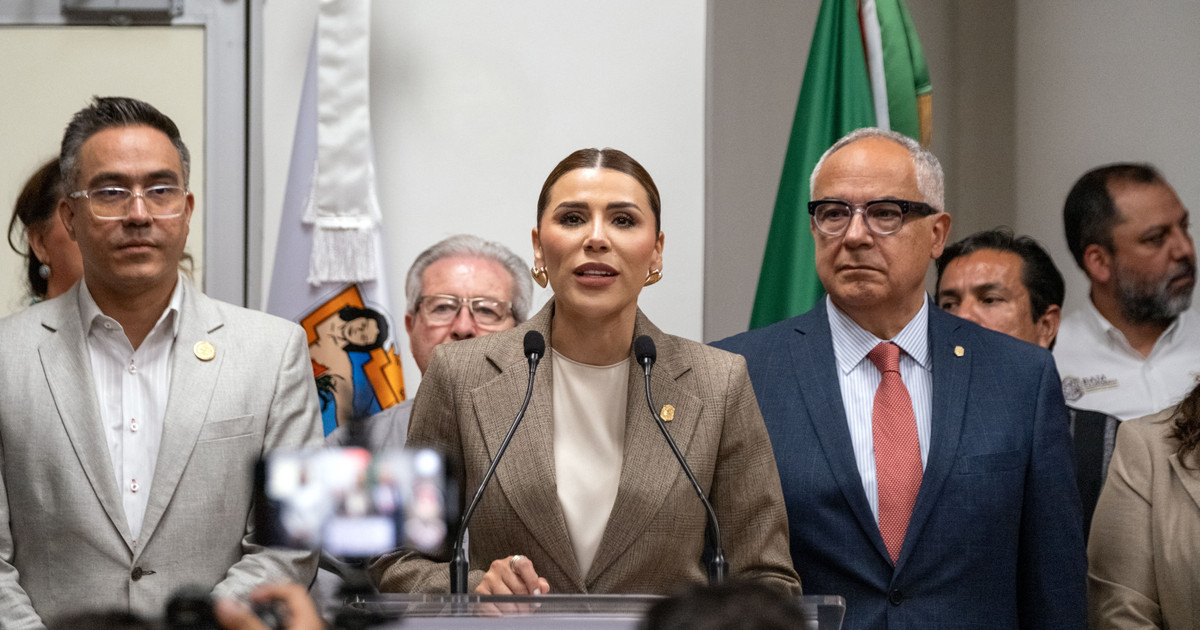Now Reading: Trump Administration Moves to Block the U.S. Travel of Mexican Politicians Who It Says Are Linked to the Drug Trade
-
01
Trump Administration Moves to Block the U.S. Travel of Mexican Politicians Who It Says Are Linked to the Drug Trade
Trump Administration Moves to Block the U.S. Travel of Mexican Politicians Who It Says Are Linked to the Drug Trade

ProPublica, a nonprofit newsroom that investigates power abuses, offers the option to subscribe and get notified of their major stories upon release.
The Trump administration has started imposing travel restrictions and sanctions on well-known Mexican politicians suspected of involvement in drug corruption, escalating pressure on Mexico, according to U.S. officials. Two Mexican political figures have confirmed being banned from entering the U.S., with more expected to face similar actions as the administration reviews a list of several dozen individuals linked to the drug trade. The list includes leaders of President Claudia Sheinbaum’s party, state governors, and politicians associated with her predecessor, former President Andrés Manuel López Obrador, as per U.S. officials who requested anonymity to discuss sensitive policy matters.
The Mexican state governor of Baja California, Marina del Pilar Ávila, disclosed that her U.S. visa and that of her husband were revoked due to a situation involving him. She emphasized that the cancellation of her visa does not imply any wrongdoing on her part. Meanwhile, Sheinbaum expressed that her government sought an explanation from U.S. officials regarding Ávila’s visa revocation but was informed that such matters are private. The sanctions and visa actions pose a challenge for the new Mexican leader, Sheinbaum, and her party, Morena, despite Mexico’s historical sensitivity to U.S. intervention.
In relation to the visa actions, U.S. officials mentioned that Treasury Department sanctions might follow to prohibit these individuals from engaging in business with U.S. companies and freeze their U.S. assets. The Trump administration has intensified its efforts against illegal drugs, designating major Mexican trafficking gangs as terrorist groups and considering potential unilateral U.S. military actions against them. The review of Mexican drug corruption was initiated by a White House team, gathering information on Mexican political and government figures with criminal affiliations from law enforcement and intelligence agencies.
Former DEA officials in Mexico City proposed the cancellation of U.S. visas for some Mexican political figures in 2019, a move that was rejected by senior U.S. diplomats. Concerns have been raised by current and former U.S. officials regarding the White House-led plan, noting the lower standard of proof required for visa cancellations and Treasury sanctions compared to criminal trials. The actions are being taken under Section 212 of the Immigration and Nationality Act, which allows the U.S. government to find noncitizens ineligible for entry based on involvement in illicit drug trafficking.
The visa withdrawals are seen as a strong signal of the U.S.’s intention to combat Mexican corruption, but they could also lead to tensions between the two governments. Further visa actions against Sheinbaum’s party members could strain relations with the U.S., potentially affecting Mexico’s stance on drug-related issues. López Obrador’s administration had pledged to combat corruption, but reports of corruption within his ranks emerged during his tenure. Sheinbaum, on the other hand, has emphasized the importance of honesty and transparency within her party to combat crime and corruption.






